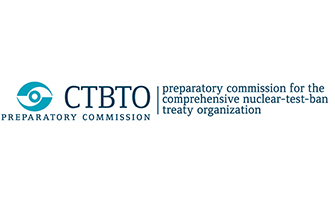The Comprehensive Nuclear-Test-Ban Treaty Organization (CTBTO) is an organization that operates a global network of special sensors. They have hundreds of monitoring stations that use seismic, hydroacoustic and other technology to detect illegal nuclear tests anywhere in the world. Sensors in Stockholm recently found higher than usual levels of radioactive isotopes usually produced by nuclear fission in the area of the Baltic Sea. The three radionuclides detected were cesium-134, cesim-137 and ruthenium-103. The CTBTO said that the elevated levels were no risk to human health or the environment. The elevated levels of these three radionuclides were detected on the 22nd and 23rd of June of this year.
Lassina Zerbo is the head of the CTBTO. He tweeted out notices of the elevated levels of radionuclides on the 26th of June. His post included a map without national borders to show where the radioactive particles may have originated in the seventy-two hours before they were detected. The marked area is quite large and covers the tips of Norway and Denmark as well as southern Sweden, much of Finland, the Baltic countries and part of western Russia including the city of St. Petersburg.
A spokesperson for CTBTO said “These are certainly nuclear fission products, most likely from a civil source. We are able to indicate the likely region of the source, but it’s outside the CTBTO’s mandate to identify the exact origin.” However, after analyzing the data, they did say that they believed that the particles came from the direction of western Russia.
The Dutch National Institute for Public Health and the Environment in the Netherlands said on Friday that the material could have come from “damage to a nuclear fuel element.” The International Atomic Energy Agency serves as the nuclear watchdog for the U.N. It said last Saturday that it was aware of the CTBTO report and that it was seeking more information from other UN member states.
The Russia state controlled nuclear power operator Rosenergoatom issued a statement to the Tass news agency in which they said that the two operating nuclear power plants in the north-west of their country were working normally and that no leaks had been reported. A spokesperson said, “There have been no complaints about the equipment's work. Aggregated emissions of all specified isotopes in the above-mentioned period did not exceed the reference numbers. Radiation levels around the two power stations have been unchanged during June.”
The Soviet Union before 1991 and Russia after that date have been reluctant to share information about any nuclear problems they may be having with nuclear power, nuclear waste or nuclear weapons manufacture. The Chernobyl disaster occurred in 1986 but was not publicly acknowledged by the Russians until ten years later. More recently, a cloud of radiation that appeared to be coming from a Russia nuclear weapons complex in western Russia was denied by Russian authorities. And, more recently, following a serious accident that involved weapons test on Russia’s northwest coast, the Russians provided few details. It may be wise to take their latest denials of responsibility with a grain of salt.
